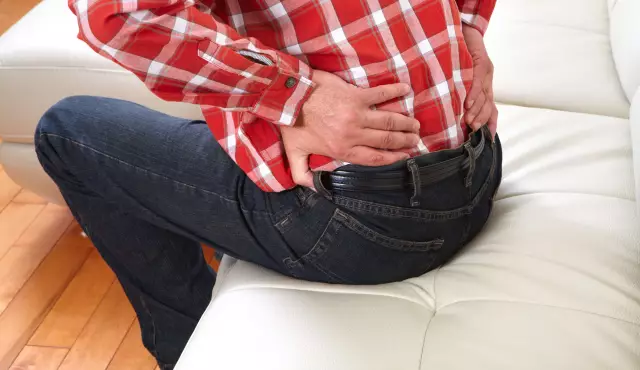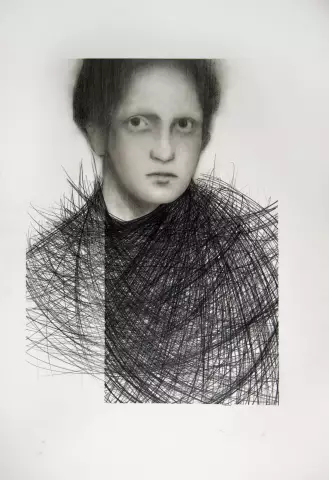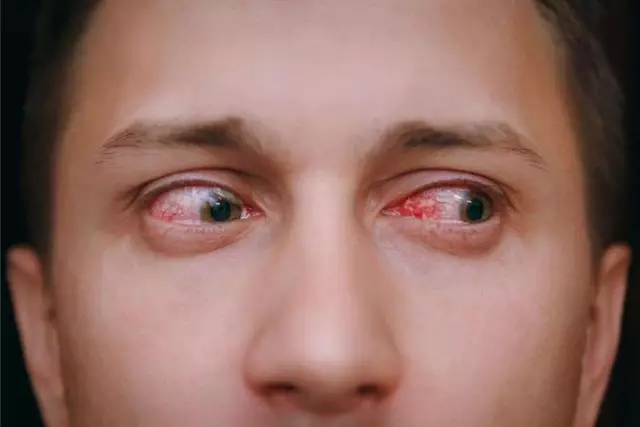- Author Rachel Wainwright wainwright@abchealthonline.com.
- Public 2023-12-15 07:39.
- Last modified 2025-11-02 20:14.
Renal colic

An attack of acute pain resulting from a sudden violation of the outflow of urine occurs in the following conditions:
- Urolithiasis disease;
- Descent of the kidney with kinked ureter;
- Kidney injury;
- Tuberculosis of the renal pelvis;
- Pyelonephritis: acute and chronic - in the acute stage;
- Kidney tumor.
Renal colic most often occurs with urolithiasis. The risk factors for its development are the following reasons:
- Suffering from urolithiasis of blood relatives;
- Loss of fluid in the body - a state of exsicosis;
- Prolonged fever, accompanied by increased body temperature;
- Kidney disease: pyelonephritis, urinary tract infections leading to cicatricial deformity, narrowing the urinary tract;
- Errors in nutrition, intake of hardly soluble products or medicines.
Renal colic in clinical practice occurs in 10% of men and 5% of emergency cases in women. Urolithiasis affects people of working age: from 30 to 50 years. In half of the cases, an attack of acute pain repeats after a while, that is, it tends to relapse.
Renal colic, development mechanism
When the lumen is blocked by calculus or compression of the ureter from the outside, the passage of urine is disturbed. It continues to be produced, but since the outflow is impaired, it accumulates in the renal pelvis, causing edema of the kidney tissue. Receptors signal a stretching of the calyx-pelvis system, an alarm signal enters the spinal cord, forming a focus of receptor overvoltage. After a while, pain impulses reach the cerebral cortex.
Renal colic, symptoms
Regardless of the source of occurrence, the main symptom of any colic is sharp (stabbing) pain. With damage to the abdominal organs, pain occurs in the abdomen and lower back. When renal colic develops, its symptoms are somewhat different from pain in colic of other localization.
The nature of pain in case of urinary tract damage:
- Suddenness, constancy, cramping;
- Quite long duration: from several minutes to 12 hours;
- The inability to take such a position of the body in which the pain subsides.
Renal colic in children is accompanied by pain in the navel, which is accompanied by an increase in body temperature up to 37.5 ° C, vomiting and severe fear.
When there is a blockage of the ureter in pregnant women, the cramping character imitates the onset of labor, however, the uterus is in normal tone, but dysuric manifestations are noted: increased frequency of urination with a small amount of excreted urine.
Depending on the location of the blockage of the ureter, renal colic gives different reflected pains, the symptoms of which indicate the anatomical localization of the urinary tract obstruction. The "traveling" stone stops at the narrowing of the ureter, and in each case, a different prevalence of pain is noted:
- The mouth in the region of the renal pelvis is in the middle region of the abdominal cavity;
- The intersection with the arteries of the iliac region - the outer surface of the thigh and the groin region;
- The mouth of the bladder is the lower abdomen;
- Inside the bladder wall is the urethra.
The resulting renal colic has symptoms not only affecting the urinary system, but also the entire body as a whole. Ureteral obstruction is often accompanied by the following symptoms:
- Vomiting;
- Paralytic intestinal obstruction;
- Dizziness, fainting;
- Increased blood pressure;
- Rare pulse.
Contrary to popular belief, hematuria (blood in the urine) appears only when renal colic resolves. That is, the stone leaves the urinary tract. As a rule, the size of calculus less than 0.5 cm contributes to self-separation along with the exiting urine. The stones are found in the urine in the form of fine sand, the separation of which is also accompanied by acute pain.
In cases where renal colic develops against the background of cancer, hematuria occurs immediately, simultaneously with back pain.
Renal colic treatment
When clarifying the diagnosis using an ultrasound examination on a portable sensor, patients are subject to emergency hospitalization in the following cases:
- Lack of effect from therapeutic measures;
- Development of complications;
- A single kidney or simultaneous lesion of two ureters.
If renal colic occurs for the first time, treatment is carried out in a hospital. This is necessary to find out the cause of kidney pathology. When the introduction of antispasmodics and painkillers has a positive effect, the patient is not hospitalized, but data about him is transferred to the clinic for outpatient observation.

Since Promedol and its analogs cause strong relaxation, as a result of which the stone moves along the ureter uncontrollably, as a result of which the volume of the operation increases several times, to date, renal colic cannot be stopped by narcotic drugs!
In order to relieve acute pain, medications are administered that block the main mediators of pain - prostaglandins. For this, non-narcotic analgesics are used.
Renal colic, emergency
For self-help, but not self-medication, some guidelines have been developed that help to cope with pain before an ambulance arrives. For mild pain and a well-known diagnosis of urolithiasis, taking a hot bath can help. In the absence of conditions for taking a bath, when renal colic begins, emergency care is limited to taking an antispasmodic (no-shpy) and applying a hot heating pad to the lower back.
It is advisable to collect urine for analysis before the arrival of the doctor. A timely laboratory test is so important that it can often save a patient's life.
YouTube video related to the article:
The information is generalized and provided for informational purposes only. At the first sign of illness, see your doctor. Self-medication is hazardous to health!






